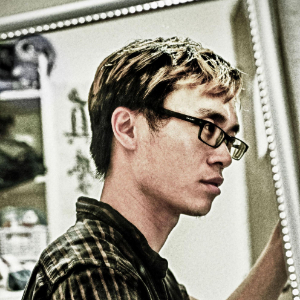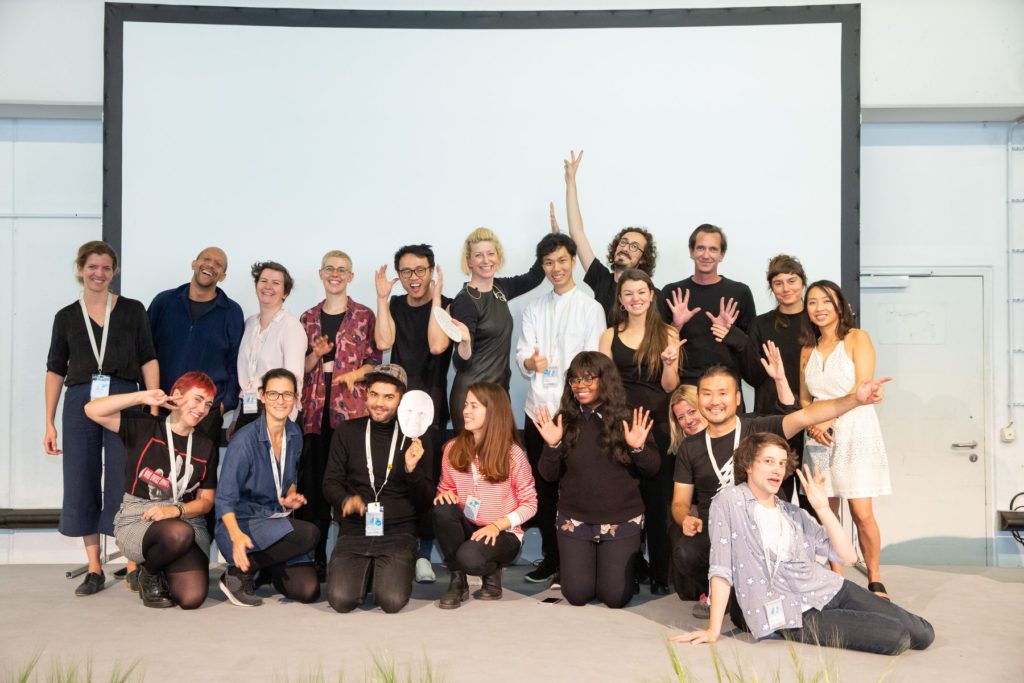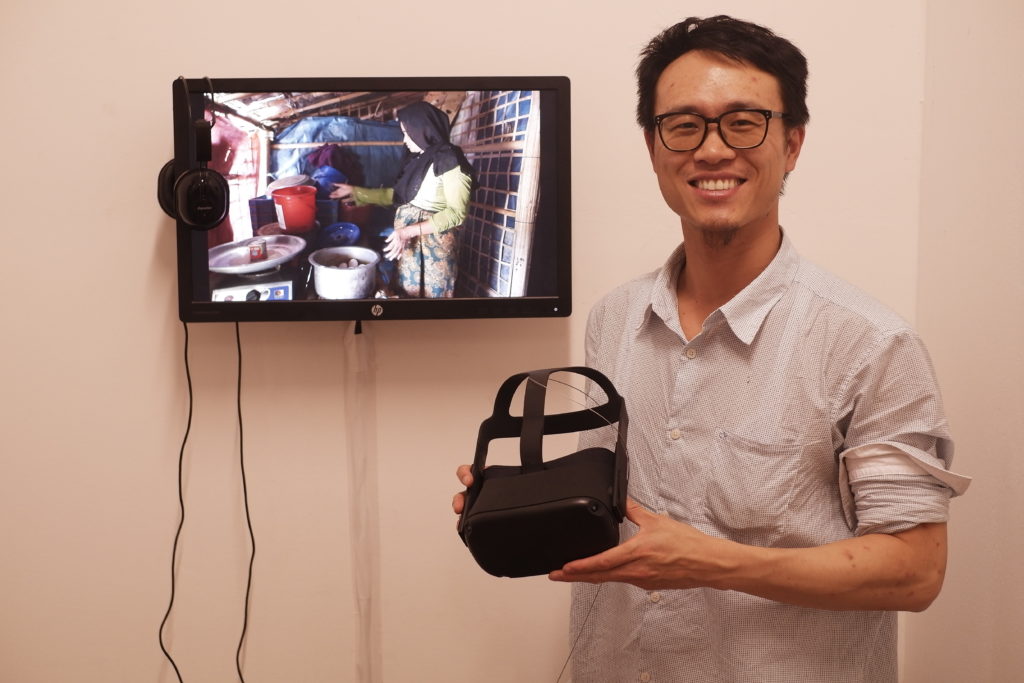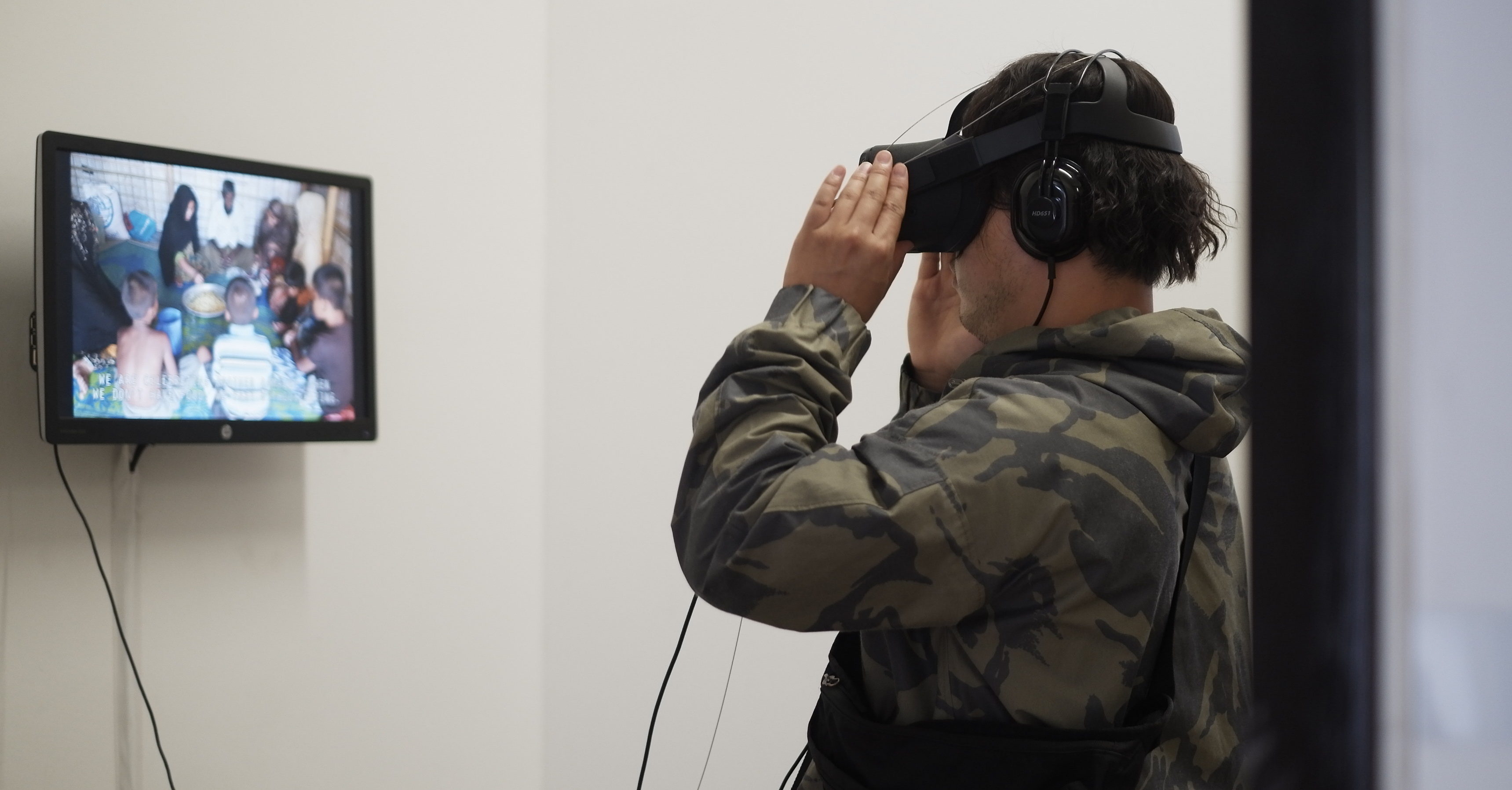Northeastern faculty member Ray LC, Visiting Assistant Professor in the Department of Art + Design, recently shared his work at Ars Electronica, one of the largest media art festivals in the world. He spoke about his new project that addresses the Rohingya refugee experience in a unique and immersive way. The multidisciplinary project, entitled Immersive Storytelling of Rohingya Refugee Experience, includes a narrative film, a VR experience, and a documentary film. At Ars Electronica, Professor LC was also a member of the Future Innovators Summit (FIS2019), a workshop applying art and design thinking to future technologies and paradigms within the larger festival.

“Ars Electronica has always been at the forefront of enabling artistic voices through technology, and vice versa. Our project is so important for understanding how to illuminate the lives of refugees in a collaborative, empowering way outside the preconceptions of Western media, that giving it exposure in a forum that celebrates the paradigm in addition to the art lends legitimacy to our approach,” said Professor LC. “Beyond the exposure, it was also valuable to form communities and see others’ ideas at Ars Electronica that extends beyond the technology to garner support from colleagues and find inspiration.”
The theme of the 2019 Ars Electronica Festival was “Out of The Box – the Midlife Crisis of the Digital Revolution.” Building off this, the goal of FIS2019 was to tackle a “Box” of problems present in today’s highly digitalized society. Professor LC was among a select group of other “future innovators” from different cultures, backgrounds, and fields who gathered together to brainstorm new ways of exploring and thinking about crucial questions for humanity, and to create future scenarios. The scholars raised questions about things that were taken for granted and developed scenarios for a better future to free today’s global citizens from the “Box.” Professor LC was a member of the “Future Humanity” topic – sitting under the “Philosophical Box” – which explored how humans, nature, and technology are intertwined and work together.
In addition to his involvement with FIS2019, Professor LC had an exhibit set up to showcase his Immersive Storytelling of Rohingya Refugee Experience project, which is a collaboration with Fabeha Monir, Bangladesh-based visual journalist, and Anika Ullah, a National Geographic Explorer, 2018-2019 Fulbright Research Scholar, and graduate student at the MIT Media Lab. Their project, which has three components, studies the refugee experience through empowering the refugees, which allows for a unique genuineness and authenticity to shine through in the final work.

The first piece of the project is a narrative film about a family who loses their daughter on the way from Myanmar to Bangladesh; the film works to preserve the memory of a girl whose family has very few ways to commemorate or communicate about her. The second component is a VR experience about life around the refugee camps from the perspectives of the children, and last, a documentary that highlights the importance of empowering refugees to express themselves by teaching them video-making during evenings at Ramadan.
This theme of empowerment is at the heart of what makes Immersive Storytelling of Rohingya Refugee Experience unique. Instead of using static, traditional cameras, the team moves the 360 camera around and allow the refugees themselves to pass the camera amongst each other, allowing viewers to ultimately see the world through their perspective. Refugees frame their own stories themselves.
“Much of the VR experiences about vulnerable populations have focused on Western interpretations that portray their situations as sad, hopeless, and deserving of our sympathetic response in a claimed-objective view of life in the camp,” Professor LC explained. “However, as soon as a journalist steps into the camp, everything that happens changes with the perceived goals of the foreigners in mind. We recognize this subjectivity and focus on empowering the refugees themselves to make a story. The result is a documentation of the collaborative effort rather than a false claim about objective truth.”

Learn more about the project at http://www.raylc.org/rohingya/rohingya.html. Professor LC’s research areas (http://www.raylc.org/) include: Human Computer Interaction, Machine Learning, Neurotech for Art and Design, Social Robotics, Technology for Social Good, VR for Empathy, and VR for Vulnerable Populations. We are excited to see his contributions to the CAMD community and beyond.


